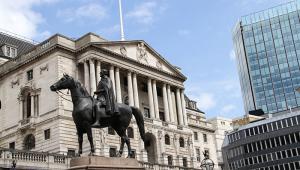Shock horror, hold the front page: Mervyn King is mouthy and arrogant, lets loose to American diplomats and has political views.
Anyone surprised by the Wikileaks revelation that the Bank of England governor has a highly-wrought view of his own worth and banal opinions should read Liaquat Ahamed's recent book Lords of Finance about Montagu Norman, the Bank of England governor who presided over the Great Depression and his US, French and German counterparts. They all behaved as if they ruled the world, and to an extent they did.
What Labour's decision to give the Bank operational independence released was merely the old genie of monetarism. By that I don't mean the technical theory that regained its popularity and purchase on policy under Margaret Thatcher, but the more profound doctrine that only money is real and all the rest of economic life – jobs, investment and commerce – epiphenomena, variables to march at the behest of the money men.
King's reported remarks confirm his belief that monetary policy alone matters. Fiscal policy – taxes and the public sector jobs they pay for – are secondary. They can take the strain, regardless of their real-world consequences.
The governor's discomfort over the revelations of his indiscretion (and some might add lack of patriotism) will pass. After all, he escaped blame for the banking crash and the Bank of England's lack of anticipation of the recession. What could find him out would be the inflation that may yet follow from the monetary expansion that was the Bank's contribution to dealing with recession.
That the UK got through the recession was thanks to active fiscal policy – spending stimulus and budgetary deficits for which Labour has had to carry political responsibility. King has washed his hands of that, siding conveniently with the deficit hawks: he genuinely believes tax and spending are secondary.
But soon it may be his turn to carry responsibility. It's hard to see – if an effect of the Bank's massive programme of quantitative easing is higher inflation – where he can hide.
So far, it's true, conjunctural conditions have not put much pressure on prices. But, as the economy picks up, King faces the possibility of swinging his one club of interest rate rises well before the recovery is sustainable and/or writing a succession of unconvincing letters to the chancellor attempting to explain why inflation is above target.
Monetary policy may be a lot less effective than King believes, but the price of money does matter and ahead could lie various unpleasant concatenations of sterling's value, domestic demand and interest rates: what happens to an export- and investment-led expansion if interest rates are jacked up to cope with inflation?
Such circumstances won't necessarily do for the governor. Central banking is surrounded by mystique. We like to cling to the idea that there are superhuman figures, all-knowing and wise, and Bank governors, carefully rationing their public appearances and minimising their direct accountability, have successfully filled the bill.
The Bank relies on the economic, political and cultural power of the banks and that, despite the crash and the bonuses, shows no sign of diminishing. Mervyn King can go on chatting to leaky diplomats without fearing for his job.
David Walker is the former managing director for communications at the Audit Commission











